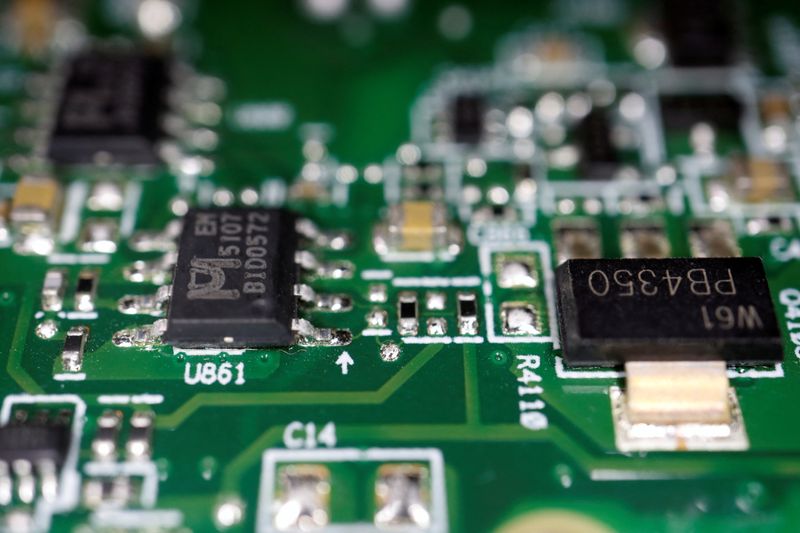Jan 27 (Reuters) - President Joe Biden’s administration is expected to award billions of dollars in subsidies in coming weeks to top semiconductor companies including Intel (INTC.O) and Taiwan Semiconductor Manufacturing Co (2330.TW) to help build new factories in the U.S., the Wall Street Journal reported on Saturday.
The forthcoming announcements aim to kick-start manufacturing of advanced semiconductors that power smartphones, artificial intelligence, and weapons systems, the WSJ reported, citing industry executives familiar with the negotiations.
The executives expect some announcements to come before Biden’s State of the Union address on March 7, according to the report.
Among the likely recipients of the subsidies, Intel has projects underway in Arizona, Ohio, New Mexico, and Oregon that will cost more than $43.5 billion, the paper said.
Another likely recipient, Taiwan Semiconductor Manufacturing Co (TSMC) has two plants under construction near Phoenix for a total investment of $40 billion. South Korea’s Samsung Electronics, also a contender, has a $17.3 billion project in Texas.
Micron Technology (MU.O), Texas Instruments (TXN.O), and GlobalFoundries (GFS.O) count among other top contenders, WSJ added citing industry executives.
Micron Technology, Texas Instruments, and GlobalFoundries count among other top contenders, WSJ added citing industry executives.
It’s good to see they’re not putting all their eggs in one basket.
They kind of do different things, but it’s still a good thing to spread the investments. We should be independent for all types of semiconductors and not just the most advanced nodes.
This is a no brainer as China continues to push to tighten it’s grip on Taiwan. I’m glad it’s moving forward. It may not be a profit making deal for the government, but it’s definitely a move to suring up national security.
deleted by creator




